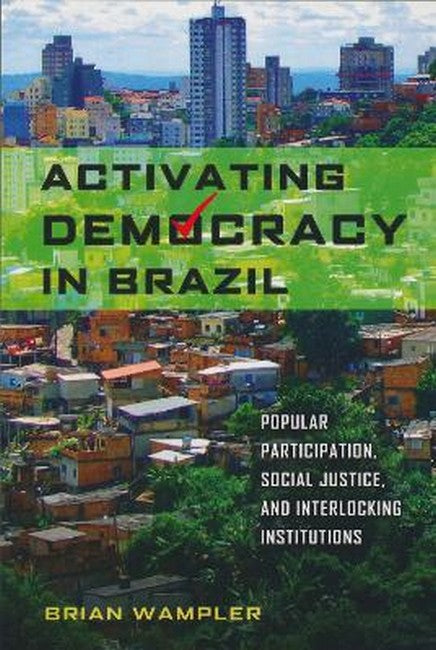Brian Wampler is professor of political science at Boise State University. He is the author of Participatory Budgeting in Brazil: Contestation, Cooperation, and Accountability.
Request Academic Copy
Please copy the ISBN for submitting review copy form
Description
"Wampler argues that accessing citizenship rights requires activation democracy, which in turn depends on devising appropriate strategies to sustain collective action; overcoming the bias in representative democracy against the poor and other subaltern groups; and finally, translating "popular" demands into policy outcomes. . . .Activating Democracywill interest students of democratization and Brazilian and Latin American politics." -Democratization "[Wampler] demonstrates the need for and delivers a more contextualized, in-depth analysis of how participatory institutions are activated by motivating ordinary citizens and civil society organization (CSO) leaders to participate. . . . Within the details of this book, we begin to see exactly how the various types of participatory institutions across diverse policy sectors are activated." -Hispanic American Historical Review "As inspiring books normally do, Activating Democracy in Brazil offers new insights and raises new questions. It also offers directions on how to reinforce democracy through participation. Its framework should pave the way for cross-regional and country comparisons." -Latin American Politics and Society "This crucial book by Wampler sets [Brazil's practices of participatory democracy] in a necessary broader context not just for Brazil, but for new democracies generally. Wampler's detailed and clear analysis is based on extensive field research including many interviews with key actors and original survey data." -Choice "Activating Democracy in Brazil is an original work. Brian Wampler uses a longitudinal qualitative study of the city of Belo Horizonte, Minas Gerais, Brazil-with which the author has maintained contact directly and indirectly for a long period-to address a number of contemporary challenges in the participation debate. It brings together interviews, observations, survey data, and social indicators to tell a complex story from a variety of different directions." -Peter Spink, Sao Paulo School of Business Administration, Getulio Vargas Foundation "Activating Democracy in Brazil answers one of the most important questions of contemporary politics: how did a country notorious for its inequality and clientelism build one of the most successful participatory democracies in the world? In this carefully argued book, Wampler takes us through the institutions, showing how a range of new political practices that emerged out of the 1988 constitution have fundamentally transformed the nature of citizen engagement with the state. The lessons here go far beyond Brazil and should inspire all those interested in seeing the democratic project move forward." -Patrick Heller, Brown University "Brian Wampler has written the best book so far on the 'real working' of participatory government in Brazil. Wampler provides the reader with a multidimensional analysis of government in Belo Horizonte that goes from the grassroots level to several different government policies. In the end, he manages to provide an excellent view of how participatory policies weave together government and civil society actors. Everyone interested in participatory government should read this book." -Leonardo Avritzer, Federal University of Minas Gerais, Brazil "On every page of Wampler's book one can see a clarity in constructing the historical context and a didactic way in presenting the topics that he wants to delve into. By focusing on multiple democratic institutions, the book illustrates how the regime of participatory citizenship generates political and social changes." -Iberoamericana "Wampler's book, which covers a span of ten years, from 2000 to 2010, is the first to use longitudinal and cross-sectoral analysis to examine the variation in participatory institutions..." -Latin American Research Review

